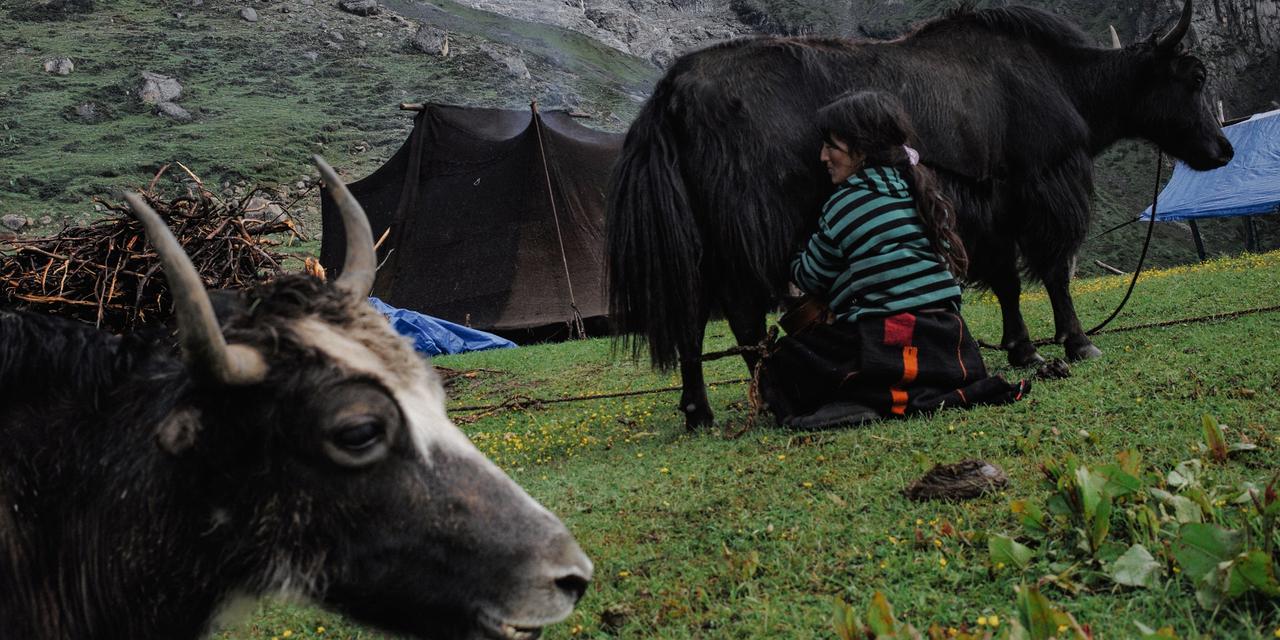


The Himalayas Overheating
6 Parts
Articles in this series:
In Bhutan, yaks are in danger in the land of happiness
Feature'The Himalayas Overheating' (6/6). In this small country, known for its concept of 'Gross National Happiness,' climate change has had a major impact on the environment and the evolution of lifestyles.
On a spring evening, on the windswept plain where the horizon is blocked by the snow-capped mountains of the Tibetan border, the scenery perfectly embodied the virtues of an age-old pastoralism. Amid the splendid immensity of these lands, battered by an icy wind, herds of yaks grazed at an altitude of 4,000 meters on this plateau stretching as far as the eye could see toward the Himalayas. A little further down, the large village of Laya – the highest in the Kingdom of Bhutan – sat on the hillside, its traditional houses adorned with intricately carved wood.
These big-cheeked, shaggy and horned cattle, however, have reason to worry about their future – not to mention their herders. In recent years, the species has begun to suffer the effects of climate change: pastures overrun by invasive shrubs, grazing grass becoming scarcer and of poorer quality, transhumance disrupted by the earlier arrival of spring, and shrinking herds. The threats have multiplied, in Bhutan as well as in other areas of the region (India, Tibet, China, Pakistan, the Pamir mountains in Tajikistan) where these animals have, for ages, embodied a kind of postcard image of the "happy Himalayas."
For several decades, Bhutan has been known worldwide for inventing the notion of "Gross National Happiness," a unique concept enshrined in its Constitution in 2008. About 30 years earlier, in 1972, the king at the time, Jigme Singye Wangchuck – father of the current monarch – had determined that his Buddhist nation needed an index that would highlight the country's spiritual values and distinguish them from the purely capitalist ones found in the rest of the world.
You have 89.68% of this article left to read. The rest is for subscribers only.





